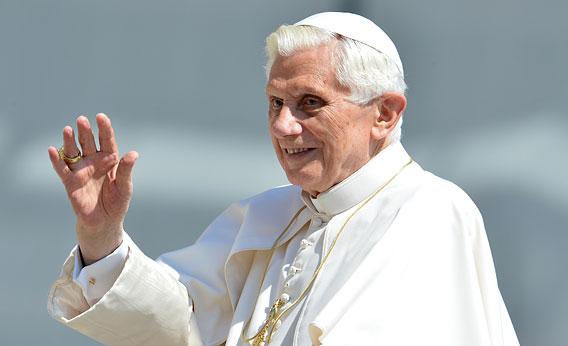Authorities in Vatican City have arrested Pope Benedict XVI’s butler, Paolo Gabriele, for leaking the pontiff’s personal papers to an Italian journalist. Gabriele is being held in a safe house while Vatican investigators interrogate witnesses and prepare for prosecution. What’s criminal justice like, Vatican-style?
It’s like criminal justice in Italy, but smaller. Upon the founding of Vatican City in 1929, Pope Pius XI decided it would be easier to adopt Italian criminal law and procedure—and any subsequent changes to that system—than it would be to build his own version from nothing. (Italy has since become too liberal for the Church on certain issues, such as abortion and homosexuality.) The Vatican’s promotor iustitiae (promoter of justice, or chief prosecutor) has the authority to haul scofflaws before the giudice unico, or trial court judge. Convicts can appeal to the three-judge Tribunale, and ultimately to the Corte di Cassazione, or Supreme Court of Appeals. Accused criminals have the right to a public defender.
Most of the differences between Vatican City’s penal system and those of other Western countries result from the country’s size. There are no jury trials in Vatican City, in part because the country’s entire jury pool consists of fewer than 900 people. Most convictions result in fines rather than confinement, because the Vatican doesn’t have a long-term prison. Those few prisoners who do receive prison sentences are housed in Italian facilities at Pope Benedict XVI’s expense. There is no plea-bargaining.
Vatican City does boast a single jail, just to the south of St. Peter’s Basilica, for pretrial detention, but it’s small and more often used for storage of equipment than criminals. It’s probably best that Vatican officials outsource their jailing duties, since they haven’t proven particularly adept at guarding prisoners. In the 1950s, a jailed monsignor escaped from the Tower of Winds, locked the warden in the cell that once held him, and strolled across the border into Italy.
The promoter of justice has a lot on his plate, because Vatican City’s crime rate is astonishingly high. In some years, he has had to prosecute one crime for every person in the country, even though the Vatican boasts nearly as many police officers as citizens. (Vatican security duties are carried out by the Swiss Guard.) By comparison, the United States suffered around 10.6 million reported crimes in 2009, which amounts to just one crime for every 29 persons. Of course, these numbers are a little unfair to the tiny religious state, because most crimes in Vatican City are committed by foreign tourists and pilgrims. In addition, violent crime is exceedingly rare. There has been only one murder case in Vatican City’s 83-year history—the 1998 killing of a Swiss guard and his wife by a subordinate officer named Cedric Tornay, who subsequently killed himself. (Claims have persisted that Vatican insiders murdered and framed Tornay as part of a struggle to control the Swiss Guard, then conducted a show investigation in an effort to put the matter to bed. The controversy underlines another difference between the Vatican justice system and those of other countries—the government is not democratic.)
Because his justice system has so little experience with prosecuting serious offenses, the Pope occasionally allows Italian courts to deal with violent crimes in Vatican City. For example, Italian prosecutors handled the 1981 assassination attempt on Pope John Paul II by Turkish citizen Mehmet Ali Ağca. The megalomaniacal would-be assassin spent 19 years imprisoned in Italy and 10 in Turkey before being released in 2010. He promptly declared himself “the Christ eternal” and promised to correct the mistakes in the gospels.
Got a question about today’s news? Ask the Explainer.
